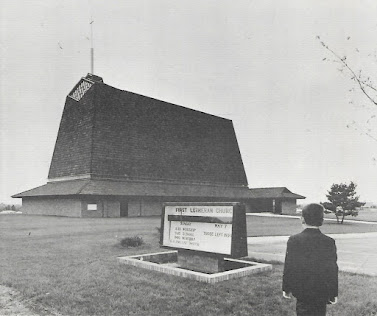Remember that you are dust…
By Bishop Brian Maas
“Remember that you are dust, and
to dust you shall return.” That proclamation was always a significant marker in
my cycle through each year while I was a parish pastor. I still hear it every
year, but it’s not the same. I don’t speak it to scores or hundreds of people,
some of whom I knew I would bury before the next Ash Wednesday.
I miss the holiness of those
moments. People experience them so differently. Some would look me square in
the eye; some to nod their solemn affirmation that they heard the truth of the
ashes, others with raised eyebrows, as though hoping this year the pastor might
say something a little less ominous. Still others shed tears as they remembered
loved ones for whom this truth had been fulfilled in the past year. Many would
come with their eyes downcast, and I could not tell whether it was in humility
or confusion or simple distraction.
Never, however, was each moment
without power. “Remember that you are dust…” This is as honest as we get in
worship. No hedging, no flowery language, just the truth: you and I are dust. Honesty
and Good News in one sentence.
Granted, “you are dust” doesn’t
immediately scream, “and that’s good news!” in the minds of most of us. But it is good news. The Good News.
Once we can honestly acknowledge
that we’re made from dust and will return to dust, we’re freed to live fully in
all that’s between. No need to waste energy worrying about what lies beyond. Jesus
Christ has taken care of that. Life beyond dust is ours, promised, bought and
paid for; life that doesn’t end.
So between dust and dust, we’re
freed. We are not only able, but called, encouraged, supported, sent to live
extravagantly, purposefully, completely. Between dust and dust are the miracles
of each moment, every one a gift from God, given to be shared. No sense trying
to hold on to those moments or to hold back living fully within them; we can’t
save them up. From one perspective, they’re only markers on our journey back to
dust. From a Gospel perspective, they’re opportunities and gifts, entrusted to
us to live as though we really believe they’re all from God.
I’ll confess: this typically isn’t
how I live. I am all too aware of the dangers of living fully and
extravagantly, of experiencing risks and thrills (yeah, I’m dull). Living like
that inevitably leads to vulnerability, and vulnerability opens one to the
possibility of being hurt. None of us is eager for that. But we’re returning to
dust whether we get hurt or not; whether we’ve lived the gift of each moment
with daring delight or dull defensiveness. So why not take the risk?
And while you’re at it, why not a real risk? Not skydiving or sticking
your tongue to a cold metal pole, but a true adventure. Consider—really
consider—the point of view of someone you disagree with; start a conversation
with someone you don’t like; invite a neighbor (or a stranger) to worship;
welcome someone different; speak up when someone uses offensive language; give
a little more than you thought you could to a good cause; volunteer in your
congregation or community.
These aren’t risks likely to
result in bodily harm, or a speedier return to dust, but they may open you to
the thrill of an adrenaline rush just the same; to a surprising
confrontation—or reconciliation, a new relationship, a changed mind, an
expanded self-awareness.
Lent is just the time for such
risks, for the self-discipline required to grow. It’s not the season for lament
or suffering or merely doing without. It’s the season for growth, for getting stronger,
for learning new things, for strengthening our discipleship muscles.
And we are set free to do that
with a simple, holy, honest reminder: we are dust. We came from dust and we’re
returning to dust. And everything in between is God’s gift, given us generously
to be celebrated, lived, enjoyed.
Remember. And live.




Comments
Post a Comment